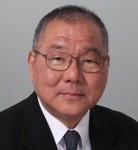TOMY supports researchers specializing on infectious disease from all over Asia
TOMY has been working closely with researchers especially in the field of infectious diseases in Japan as well as Asia. TOMY is a manufacturer for Autoclaves and Centrifuges, their mission is to provide high quality equipment and superior services to researchers in the Life Science Research and Development field. Find out for yourself what’s happening in infectious disease research field in Asia from Japanese researcher’s point of view.
TOMY’s equipment is known for durability and its reliability. Since the company’s foundation in 1958, their aim has been to satisfy customers’ needs and producing equipments which can answer to the needs of future research areas in Bioscience. For example, TOMY was the first in the world to produce refrigerated Centrifuge which revolutionized research scenes. Dr. Aikichi Iwamoto is a long time user of TOMY’s Centrifuge and now has expanded its use in research laboratories in China.
Setting up Asian Research Centers
As an effort to combat infectious pandemic disease like Severe Acute Respiratory Syndrome (SARS) and Avian Influenza, collaborative research projects have started. The first phase of the program started in 2005. Now the second phase of the program the Japan Initiative for Global Research Network on Infectious Disease (J-GRID) has started one year after the article and will continue until 2014. Since then 13 collaborative overseas research centers have started up in 8 countries in Asia (see the map on p.15). These institutes are responsible in sharing information and resources, providing training, and allocating human resource where needed. The Institute of Medical Science at the University of Tokyo is in charge of directing the initiative in China. Dr. Iwamoto is the head of the research center working hard for the success for this project which ties China and Japan. “Some parts of China has an access to advanced technologies like other developed countries, however other parts do not. Transferring diagnostic technologies to rural area is one approach. The other is to push on-going research in the city areas and training younger generations, and to foster the relationship between Japan and China. I choose to work on the latter.”To achieve this goal Dr. Iwamoto set up 2 research stations in Beijing. These two stations specialize in micro-organisms and bio-physics field. Another research center is located in Harbin and research interest includes avian influenza. “When studying pathogenic microbes, the first sets of equipment needed are centrifuges and autoclaves. It’s the basic equipments but infectious disease research can’t go anywhere without the machines. Hence, when choosing the centrifuges and autoclaves the quality of the products is very important.” His main area of researches are Human Immuno-deficiency Virus (HIV), Hepatitis C Virus (HCV), avian influenza, protein structural analysis to target on emerging and re-emerging infectious diseases. When starting up the research centers in China, we decided to set up TOMY’s Autoclaves and Centrifuge which he is familiar with in Japanese lab environment.
Pathogenic Microbe Research in Asia
Dr. Iwamoto started his career as clinician and then went to Canada for three years. When he came back to Japan, he concentrated on carrying out research about HPV and HCV. In the mid 1980’s his interest shift to HIV/AIDS, he began to realize that doing experiments in a lab was no enough. “I would lose my creativity if I limit myself only to work inside the lab” said Dr. Iwamoto. This made him join the Institute of Medical Science where he can carry out research as well as take care for patients. In the beginning, there’s no effective treatment. Gradually, treatment became available. However, no vaccines were available and there was also a problem of drug resistance. In fact, there are still many things which needed to overcome in HIV research. Being clinician is the best position to understand the need of patients. Hence, being physician scientist is critical especially in infectious disease research. His clinical experience is also very useful for his activity in China. “Development of medicine and clinical treatment take similar paths everywhere. Unfortunately, what’s effective treatment or practice in one country may not be suitable in another. We actually need to go to the sites and work together with the Chinese researchers.” It is important for successful international collaboration to grasp the need and capability of the research, using similar levels of literacy on a speciealized area. Dr. Iwamoto continues to fight infectious disease in Asia in hope to protect people from emerging infectious diseases.
TOMY DIGITAL BIOLOGY CO., LTD.
Tel +81-3-5971-8160 E-mail: [email protected] Website: http://www.digital-biology.co.jp/manufactured/
Recent activities (visiting researchers, expos, seminars) by TOMY in Asia
2011 Sept. Korea (Korea Advanced Institute of Science and Technology)
2012 Feb. & May Indonesia (Airlangga University, Bogor Agricultural University, Brawijaya University, Institut Teknologi Sepuluh
Nopember, Univeersitas Gadjah Mada, University of Indonesia, Bandan Pengkajian dan Penera pan Teknologi
(BPPT), Institute of Sciecne and Technology (LIPI))
2012 Sep. Thailand (Kasetsart University, Mahidol University, King Mongkut’s University of Technology Thonburi, National
Center for Genetic Engineering and Biotechnology (BIOTEC))
Nov. Vietnam (Hanoi University of Science and Technology, Vietnamese Academy of Science and Technology)
2013 Mar. Malaysia (The National Univerity fo Malaysia, University of Malaya, Universiti Sains Malaysia)
Malaysia (The National Univerity fo Malaysia, University of Malaya, Universiti Sains Malaysia)


